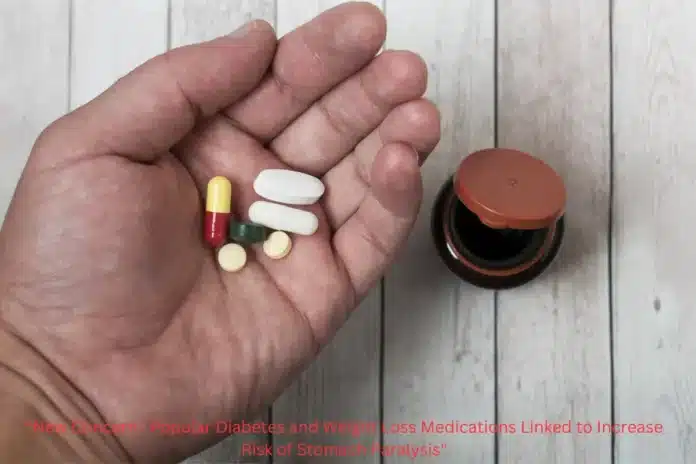Recent research indicates that widely-used diabetes and weight loss drugs, such as Ozempic and Wegovy, may be associated with a heightened risk of stomach paralysis.
The research findings were highlighted at Digestive Disease Week 2024, an event held from May 18-21 in Washington DC, USA. (Freepik)
Gastroparesis, a condition also referred to as stomach paralysis, causes the stomach muscles to weaken, resulting in food remaining in the stomach for an extended period.
Wegovy has received approval from the US Food and Drug Administration (FDA) for weight control, whereas Ozempic is sanctioned as a treatment aiding individuals with type 2 diabetes in regulating their blood sugar levels.
Despite not having FDA approval for weight reduction, Ozempic is occasionally prescribed for this use. Both Wegovy and Ozempic are injectable medications that include the protein semaglutide, which mimics the hormone glucagon-like peptide-1 (GLP-1).
Upon consumption of a meal, the body releases GLP-1, which primarily stimulates the secretion of insulin.
Although these medications for diabetes and weight loss, referred to as GLP-1 receptor agonists or GLP-1 analogues, are recognized for causing gastrointestinal side effects like nausea, vomiting, and diarrhea, recent research indicates rarer issues such as stomach paralysis (gastroparesis), ileus, and acute pancreatitis are also emerging.
The research findings were unveiled at Digestive Disease Week 2024, held from May 18-21 in Washington DC, United States.
A study carried out by researchers, including experts from the University of Kansas, examined 185,000 patients with diabetes or obesity who were given GLP-1 analogues between December 1, 2021, and November 30, 2022.
Approximately 0.53 percent of patients were diagnosed with gastroparesis, with researchers estimating that the likelihood of developing the condition rose by 66 percent.
Inflammation of the gall bladder, known as cholecystitis, was seen in 0.55 percent of the patients, with an estimated 28 percent rise in the likelihood of developing this condition.
The researchers discovered that 0.04% of patients prescribed GLP-1 analogs developed pancreatitis induced by the drug and calculated that the risk of this condition increased by over 350%.
Additionally, they observed that 9% of patients had a notably higher occurrence of nausea and vomiting, while 7.5% exhibited an increased rate of gastroesophageal reflux disease (GERD), where stomach contents flow back into the esophagus.
The findings indicated that “the administration of GLP-1 agonists in individuals with diabetes mellitus and obesity is linked to gastrointestinal adverse effects, such as nausea, vomiting, gastroparesis, GERD, esophagitis, drug-induced pancreatitis, cholecystitis, and the necessity for upper endoscopy,” the researchers noted in the study, which is currently presented as an abstract.
A second investigation evaluated the likelihood of gastroparesis in patients with type 2 diabetes who were treated with GLP-1 receptor agonists (RA). Each of the two cohorts—one receiving the medication and the other not—included over 336,000 patients.
Patients with Type 2 Diabetes (T2D) who were prescribed GLP-1 receptor agonists (GLP-1 RAs) showed an elevated risk of developing gastroparesis (GP) at intervals of 6, 9, 12, 18, and 24 months. According to the authors, including those from the Cleveland Clinic in Ohio, “The odds ratio for gastroparesis significantly increased after 6 months through 24 months after controlling for different risk factors.” This conclusion was drawn from data obtained through the multi-institutional TriNetX database.
In another related study by researchers from the Mayo Clinic in Minnesota, the impact of GLP-1 RAs on gastrointestinal (GI) symptoms was examined. The analysis included data from approximately 80,000 patients who were prescribed GLP-1 RAs, obtained from the Mayo Clinic Platform.
The study revealed that almost 14,660 patients, or 18 percent, developed at least one new gastrointestinal (GI) symptom indicative of gastroparesis. Approximately 700 of these individuals underwent gastric emptying scintigraphy (GES), a test that evaluates the stomach’s emptying function.
The researchers discovered that around one-third of this subset suffered from gastroparesis.
“These real-world data indicate that GI symptoms are common in patients being treated with GLP-1 RA,” the authors noted in the study’s abstract.


